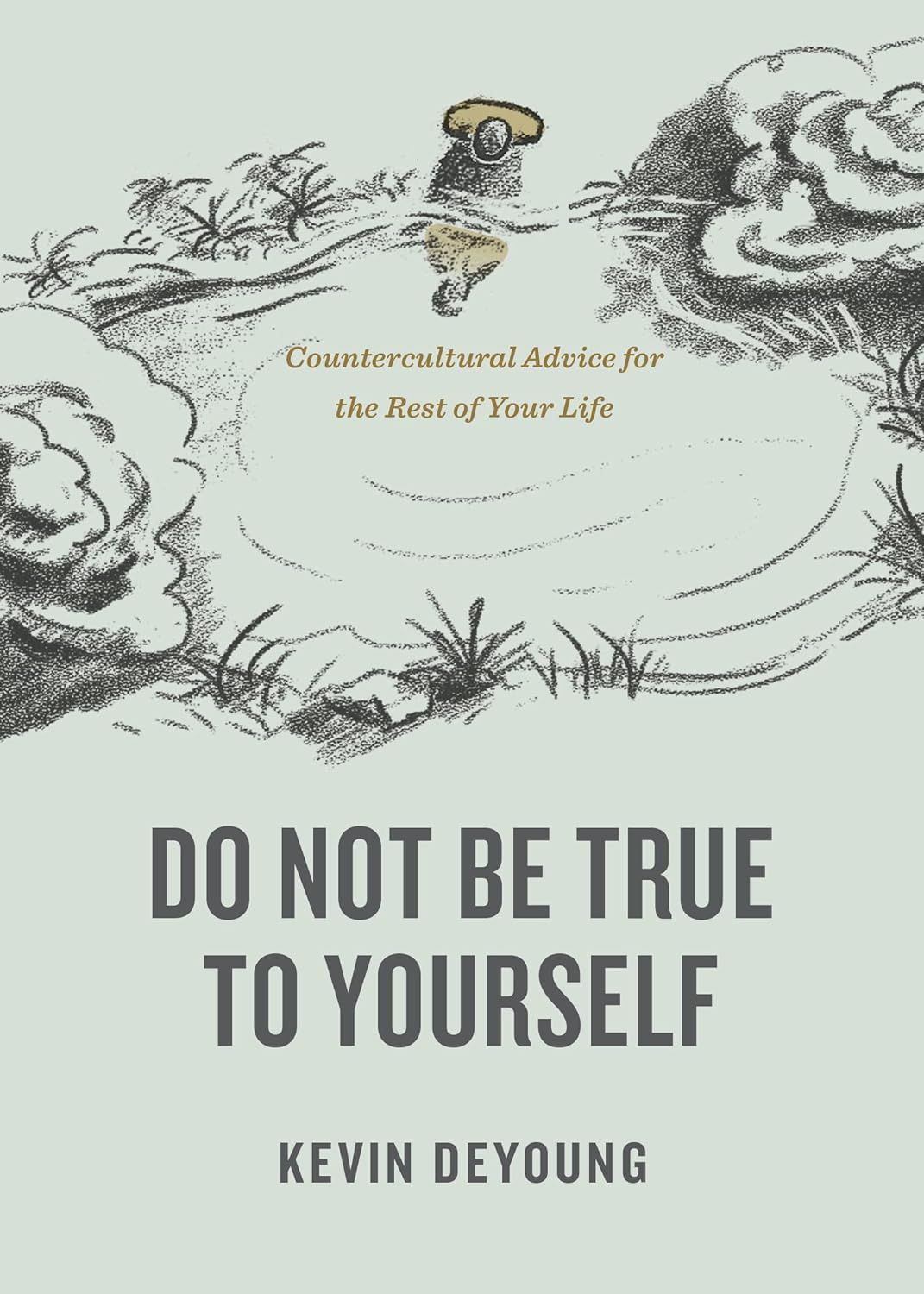Why "Be True to Yourself" is Terrible Advice
Why “Be True to Yourself” Is Terrible Advice
(And What the Bible Says Instead)

If you’ve ever sat through a graduation speech, motivational seminar, or Disney movie, you’ve likely heard the mantra: “Be true to yourself.” It sounds harmless - even noble - in a culture that prizes authenticity and self-expression. But what if this advice isn’t just unhelpful, but spiritually dangerous?
In his book Do Not Be True to Yourself, pastor and theologian Kevin DeYoung dismantles this modern creed from a Reformed Christian perspective. He argues that the call to “follow your heart” isn’t just misguided - it’s a rebellion against the God who designed us. Here’s why.
1. The Problem With “Yourself”
The phrase “to thine own self be true” comes from Shakespeare’s Hamlet, where the character Polonius uses it to advise his son to prioritize self-interest above all else. Today, the phrase has been rebranded as a call to embrace your inner desires. But Scripture paints a starkly different picture of the human heart:
- “The heart is deceitful above all things” (Jeremiah 17:9).
- “No one seeks God; all have turned aside” (Romans 3:10–12).
DeYoung writes, “Our problem isn’t that we’re not true to ourselves - it’s that we are.” Left to ourselves, we’re slaves to sin (Ephesians 2:1–3). The “authentic you” isn’t a hero to follow but a broken soul needing redemption.
2. Five Countercultural Alternatives to “Being True to Yourself”
DeYoung doesn’t just critique - he offers a better path. Here’s how his book challenges modern self-worship:
A. Stop Trusting Your Desires
Culture says, “Follow your heart.” DeYoung says, “Your heart will lead you straight to a dead end.”
- Example: A young adult feels “authentic” leaving the church to explore spirituality. DeYoung warns that habits like church commitment shape our souls more than fleeting feelings.
B. Reject the “Follow Your Dreams” Gospel
Movies like Frozen preach self-determination (“Let It Go”), but DeYoung urges graduates: “Don’t follow your dreams - follow Christ.”
- Practical Tip: Choose a church before choosing a college. Prioritize spiritual discipline over self-actualization.
C. Embrace Single-Minded Devotion
Joshua 24:15 says, “Choose this day whom you will serve.” DeYoung contrasts this with cultural half-heartedness: “You can’t serve God and your ‘true self.’”
D. Delight in God’s Boundaries
The world says rules stifle authenticity. DeYoung points to Psalm 1: True joy comes from meditating on God’s law, not chasing license.
- Example: View sexual ethics not as restrictions but as guardrails for flourishing.
E. Surrender Your Autonomy
DeYoung’s most radical claim: “The only ‘you’ worth being is the ‘you’ crucified with Christ” (Galatians 2:20). Identity isn’t self-constructed - it’s received in union with Jesus.
3. Why This Matters in 2025
We live in an age of expressive individualism, where identity is self-made and truth is personal. Social media, politics, and even churches often echo Polonius’ advice. But DeYoung reminds us:
- “Your wants are not your destiny.”
- “The gospel isn’t about finding yourself - it’s about losing yourself in Christ.”
The Reformed confessions agree. The Heidelberg Catechism opens with the antidote to self-trust: “My only comfort in life and death is that I belong to Christ.”
Conclusion: A Better Kind of Freedom
Being “true to yourself” is exhausting. It chains you to fleeting desires, cultural trends, and the pressure to curate a perfect identity. But the gospel offers liberation:
- “Take my yoke upon you… For my yoke is easy, and my burden is light” (Matthew 11:28–30).
DeYoung’s message isn’t about squashing your personality - it’s about finding your true self in the God who designed you. As C.S. Lewis wrote, “The more we let God take us over, the more truly ourselves we become.”
So next time someone says, “Be true to yourself,” smile and reply: “No thanks - I’d rather be true to Christ.”
Call to Action:
- Read Do Not Be True to Yourself for a deeper dive.
- Reflect: Where are you prioritizing “authenticity” over obedience?
- Share this article with a friend stuck in the “follow your heart” trap.
“For whoever would save his life will lose it, but whoever loses his life for my sake will find it.” (Matthew 16:25)*

